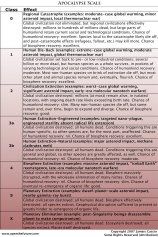From the Unemumerated blog, this piece was originally written in 1993:
Using materials native to space, instead of hauling everything from Earth, is crucial to future efforts at large-scale space industrialization and colonization. At that time we will be using technologies far in advance of today’s, but even now we can see the technology developing for use here on earth.
There are a myriad of materials we would like to process, including dirty organic-laden ice on comets and some asteroids, subsurface ice and the atmosphere of Mars, platinum-rich unoxidized nickel-iron metal regoliths on asteroids, etc. There are an even wider array of materials we would like to make. The first and most important is propellant, but eventually we want a wide array of manufacturing and construction inputs, including complex polymers like Kevlar and graphite epoxies for strong tethers.
The advantages of native propellant can be seen in two recent mission proposals. In several Mars mission proposals[1], H2 from Earth or Martian water is chemically processed with CO2 from the Martian atmosphere, making CH4 and O2 propellants for operations on Mars and the return trip to Earth. Even bringing H2 from Earth, this scheme can reduce the propellant mass to be launched from Earth by over 75%. Similarly, I have described a system that converts cometary or asteroidal ice into a cylindrical, zero-tank-mass thermal rocket. This can be used to transport large interplanetary payloads, including the valuable organic and volatile ices themselves into high Earth and Martian orbits.
Continue reading “Nick Szabo's Chemical Microreactors” »










